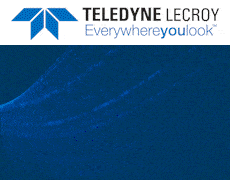U.2 NVMe All Flash Scale Out NAS From PAC Storage
Each node can be installed with 14 U.2 SSDs, bringing 4.1GB/s read and 3.1GB/s write per node throughput.
This is a Press Release edited by StorageNewsletter.com on October 7, 2021 at 2:03 pmPAC Storage (Pacific Alliance Capital), an affiliate company of Boxx Technologies, has added the Scale Out NAS product line: All flash NVMe Scale Out NAS.
This NVMe solution excels in performance-demanding requirements for high throughput and low latency workloads from M&E and HPC, to big data and more.
“PAC continues to bring new product technologies that are viable for our clients ever-changing application needs,” said Rick Crane, CEO. “Our new All flash NVMe Scale Out can reach 20GB/s throughput on a 5-node cluster. This extreme I/O throughput is offered at a reasonable price so organizations can rely on PAC for next gen technology in SAN/NAS storage solutions.“
The PAC Scale Out NVMe NAS storage is purpose-built to optimize scalability and performance simultaneously by adding more nodes. Each node of the NVMe Scale-Out can be installed with 14 U.2 SSDs, bringing 4.1GB/s read and 3.1GB/s write per node throughput. This configuration also provides data protection and HA to avoid data loss and system downtime caused by disk damage or system failures.
Also new is the Scale Out auto-tiering function which offers a cost-effective solution for users who prefer a mix of SSD and HDD. This feature automatically allocates data, including ‘hot data’ accessed, which is most often stored in the SSD tier for speed. The auto-tiering function also allocates ‘cold data’ rarely accessed to reside in the HDD tier, thereby optimizing capacity usage for saving costs.
The company’s system provides intelligent drive management and real-time SSD monitoring to predict the number of days left for usage. When an SSD is approaching its end-of-life, the system notifies users to timely replace the flash device. Using a set of smart algorithms, firm’s system optimizes data to prolong the its service life while preventing simultaneous damage of multiple SSDs.
In addition to All flash NVMe Scale Out NAS, the company was recently selected as one of the 20 Most Promising storage Solution Providers 2021 and Top 10 M&E Solution Companies 2021 by CIO Review magazine.
|
Form Factor: |
2U 14-bay |
|
Controller: |
Single controller per node |
|
CPU: |
Intel Skylake-D (Xeon-D) 12-Core |
|
Number of Nodes: |
3-144 |
|
Network Types Combinations: |
Combination 1: Onboard 2x10Gb/s (front-end) + Onboard 2x10Gb/s (internal) |
|
Combination 2: Onboard 4x10Gb/s (Front-end) + Host Board 2x25Gb/s (internal) |
|
|
Combination 3: Onboard 4x10Gb/s (Front-end) + Host Board 2x40Gb/s (internal) |
|
|
Combination 4: Host Board 2x40Gb/s (Front-end) + Host Board 2x40Gb/s (internal) |
|
|
Combination 5: Host Board 2x25Gb/s (Front-end) + Host Board 2x25Gb/s (internal) |
|
|
Max Number Host Ports per node: |
12 |
|
Cache Memory: |
64GB upgradeable to 256GB |
|
Max SSD Cache Pool: |
3.2TB |
|
Cache Backup Techniques: |
Super capacitor+flash module |
|
Maximum Number of Drives (per node): |
2U 14-bay: 74 |
|
Drive Connectivity: |
PCIe |
|
Drive Advanced Features: |
S.M.A.R.T. support/ Automatic bad-sector reassignment/ Dedicated bandwidth to each connected drive |
|
Supported Drives: |
2.5″ NVMe SSD |
|
Protocol Support: |
File Level Protocol: CIFS/SMB, NFS, FTP |
|
Cloud Gateway: |
Available Integration with public and/or private cloud |
|
Data Protection: |
Data protection: |
|
Distributed |
|
|
Node protection: Erasure code (2+1 or 4+1 or 4+2 or 8+1 or 8+2) |
|
|
Replica (x2, x3) |
|
|
File-level remote replication (Rsync) |
|
|
Data service |
|
|
SED (Self-encrypting drives) |
|
|
RAID Functionality: |
Global, dedicated or enclosure hot-spare |
|
RAID levels supported : RAID-5, -6 |
|
|
Availability and Reliability: |
Self-healing design |
|
WORM |
|
|
Notification: |
Event notification methods including email and SNMP trap. |
|
Management: |
Web-based management software and module status LED indicators |
|
Pool and RAID management |
|
|
Storage Resource Management to analyze history records |
|
|
OS Support: |
Windows Server 2008/2008 R2/2012/2012 R2/2016 (including Hyper-V), Windows 7 SP1/Windows 8.1, RedHat Enterprise Linux, CentOS, SUSE Linux Enterprise, Sun Solaris, Mac OS X, VMware, Citrix XenServer |















 Subscribe to our free daily newsletter
Subscribe to our free daily newsletter


